Miura Irons Review 2023 – Are They Any Good?
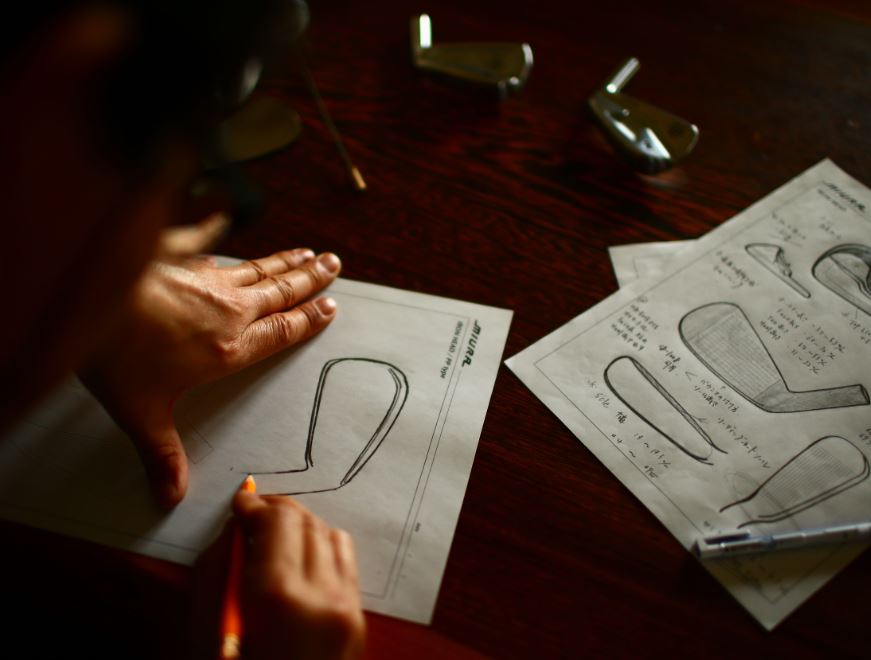
As a golfer, the new year could mean a new set of irons for your bag.
And while the prospect of new irons is always exciting, you have to be very careful about which you choose.
If you are even considering Miura irons then you are probably at the point where you need your irons to start keeping up with your advanced play.
But do Miura irons really live up to the hype? Most people know Miura from their fabled forged irons – it’s what the company specializes in.
But are forged irons really what you need? In the following brand review, we will be taking a look at the company and some of their most famous irons.
The goal here is to help you A) decide if Miura irons are really worth it for you and B) steer you in the direction of the Miura irons that might suit your game the best.
Let’s get started!
What Makes Miura Irons Special?
There’s got to be a reason why Tour pros like Abraham Ancer, Brandt Snedeker and Charl Schwartzel use Miura irons.
So what is it that makes Miura irons so desirable by the top players in the world?
Well for one thing, Miura forges their irons three times in order to manipulate the grain structure of the steel.
The result is an ultra-dense steel that is incredibly durable. Most of their irons also use carbon steel which is a premium steel that imparts a soft feel.
Softer feeling irons are preferred by better players because they allow for superior workability.
Miura irons are known to be incredibly durable and incredibly responsive which is why they are hit for everyday and professional golfers.
Miura Quick Facts
- Established: 1957
- Country of Origin: Japan
- Specialties: Irons, wedges, putters
- Process: Triple-forging
Who Are the Irons for?
The downside to the painstaking individual forging process is that these irons are made with discerning players in mind – and discerning players usually refers to ones that have been playing the game for a long time.
Miura doesn’t really make game improvement irons so their irons are usually reserved for pros, amateurs, scratch and single-digit handicap players.
They are also very expensive so they are not the irons you want if you are on a budget.
It should also be noted that many Miura irons need to be re-ordered as most of them are individually made.
Miura Irons Review 2023
-
1. – Miura KM 700 Irons
-
2. – Miura PI-401 Irons
-
3. – Miura CB-301 Irons
-
4. – Miura TC-201 Irons
-
5. – Miura MC-501 Irons
#1 – Miura KM 700 Irons Review
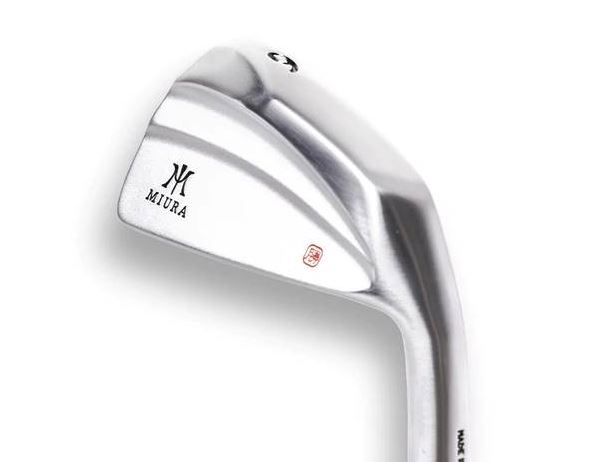
3 Selling Points
- S20C Soft Carbon steel construction
- Toe-cut grind
- Miura Hanko stamp in each iron
Quick Facts:
- 4-PW composition
- 251-298 gram weight range
- 50”-35.75” length range
The KM 700 irons are truly works of art. They feature a contoured muscle back and have a very sharp look at point of address.
The special toe-cut grind works in tandem with the design of the hosel to keep the CG nice and low.
At first, we were actually very surprised at how forgiving these irons were.
Even though they have compact heads and rather thin toplines, they preserve ball speed very well around the perimeter of the fac
Who Are They For?
The KM 700 irons would actually be a decent choice for mid handicappers – so long as you have about $2500 to spend on a set of irons.
They are one of the more forgiving Miura iron sets that we have ever tested.
Pros & Cons
Pros:
- Amazingly soft feel
- High launch
- Surprisingly forgiving
Cons:
- Limited short game spin
Overall Score: 97/100
Check Out More Reviews Here:
#2 – Miura PI-401 Irons Review
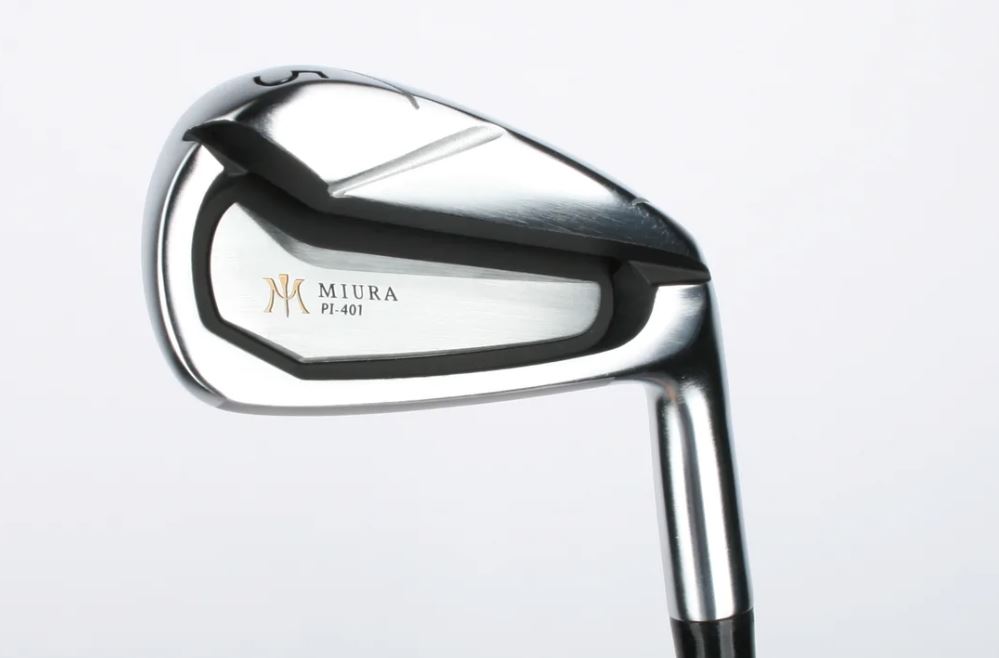
3 Selling Points
- Cavity back design
- Multi-material construction
- Strong loft
Quick Facts:
- S35C Carbon Steel face
- 8620 Soft Steel body
- 248-294 gram weight range
The PI-401 irons are a bit of an oddity among Miura irons, mainly because these are muscle back irons.
Miura states that the PI-401 irons are for players of all skill levels. They have a very nice satin chrome finish that looks stunning both in the bag and behind the ball.
These are perhaps the best distance Miura irons that we have ever tested. They produce low, piercing flight; but you will have to have a decent swing speed.
Our testers with swing speeds under 90 MPH struggled to break 155 yards with the 5-iron in this set.
Who Are They For?
The PI-401 irons are moderately forgiving as well. Therefore, we feel that they would be best in the bags of mid handicappers.
Their cavity back design doesn’t look too terrible at address and it does a good job of increasing overall forgiveness.
Pros And Cons
Pros
- Moderately forgiving
- Low launch
- Great “metal-wood” flexing effect
Cons
- Not for slower swing speed players
Overall Score: 94/100
Check Out More Reviews Here:
#3 – Miura CB-301 Irons Review
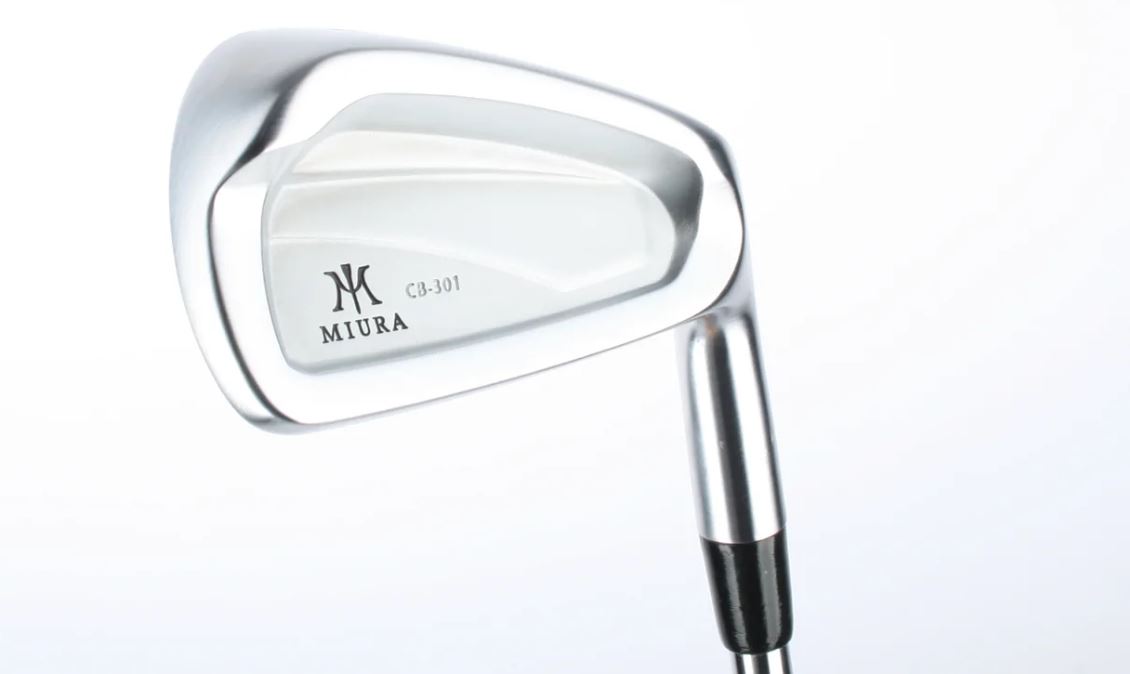
3 Selling Points
- Forged construction
- Cavity back
- Variable sole thickness
Quick Facts:
- Satin chrome finish
- S20C Soft Carbon steel
- Variable cavity thickness
Our first impression of the CB-301 irons was that they were incredibly versatile.
The variable sole thickness allows for incredible turf interaction throughout the set while the variable cavity thickness optimally places the CG from the 4-iron all the way through the gap wedge.
The result were long irons that yielded incredible distance and short irons that could play in the tightest of lies.
The soft carbon steel construction affords the players immense workability throughout the set as well.
Who Are They for?
The CB-301 irons would work well for players who need accuracy from their long and short irons.
If you need the ability to precisely shape your shot on long and short approaches, these are the Miura irons for you.
Pros And Cons
Pros
- Incredible accuracy throughout the set
- Optimal CG throughout the set
- Expansive sweet spot
Cons
- Muted sound
Overall Score: 96/100
Check Out More Reviews Here:
#4 – Miura TC-201 Irons Review
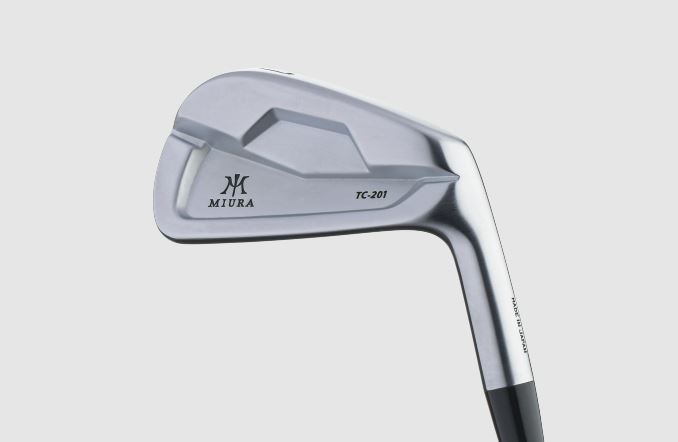
3 Selling Points
- Muscle back design
- Progressive weighting
- Perimeter weighted
Quick Facts:
- S20C Soft Carbon steel construction
- Satin Chrome finish
- Minimal offset
Our first impression of the TC-201 irons can be summed up in a statement: this is what you think of when you think of Miura irons.
The TC-201 irons have a thin topline, minimal offset and short blade that calls out to scratch players like a siren’s song.
The longer irons have a lower CG and the shorter irons have a higher CG which is exactly what you need to cover distance and land fast greens.
They are perimeter weighted so they even offer a moderate amount of forgiveness when you slightly miss the sweet spot.
Who Are They For?
The TC-201 irons are definitely for single-digit and scratch players.
They have a great player’s performance profile and will satisfy the all-around performance needs of more demanding players.
Pros And Cons
Pros
- Great long game performance
- Great accuracy around the pin
- Controlled flight throughout
Cons
- Very expensive
Overall Score: 98/100
Check Out More Reviews Here:
#5 – Miura MC-501 Irons Review
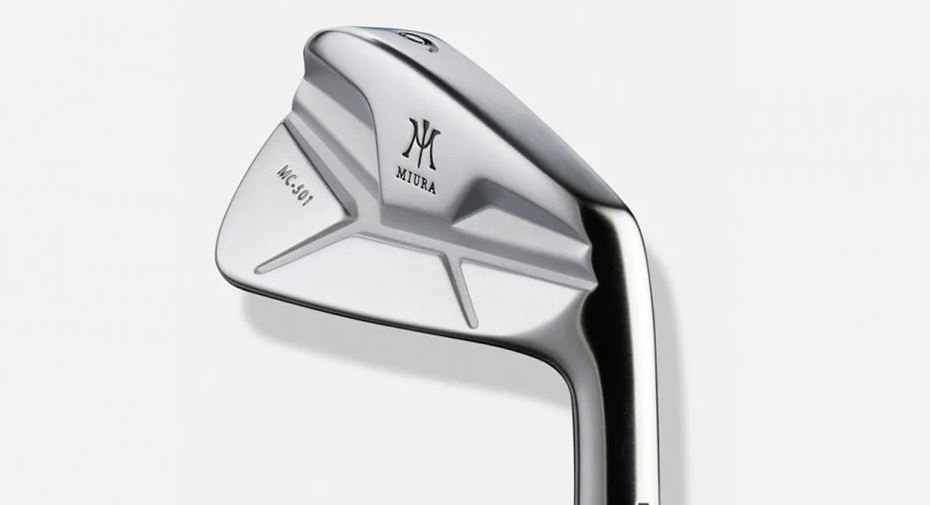
3 Selling Points
- Thin topline
- Muscle cavity design
- Y grind
Quick Facts:
- S20C Carbon Steel Construction
- 3-SW composition
- Custom shafts
The MC-501 irons look a bit odd at first.
They have a sharp muscle back design that Miura calls a “muscle cavity” and it’s supposed to afford players the workability of a muscle back iron and the forgiveness of a cavity back iron.
When you look down at these irons, you see an incredibly thin topline. At address, they look more like muscle back blades than they do cavity back irons.
And they do give you the playability of performance irons. It;s easy to control the flight and hit towering or low trajectory shots.
The spin rates are fairly low across the board; but that shouldn’t be a problem for better players.
Who Are They For?
While Miura states that the MC-501 irons are forgiving enough for mid handicappers, we would sadly beg to differ.
While they do have wider soles and more offset than your traditional blades, they still look and play more like blades.
You will still suffer poor ball speeds and accuracy when you hit out toward the toe or in towards the heel.
For those reasons we would say the Miura MC-501 irons are still for your single-digit handicappers.
That being said, they will offer you some good forgiveness if you only tend to mis-hit occasionally.
Pros And Cons
Pros
- Very easy for better players to shape shots
- They have a very soft feel
- Easier to hit with than full-on blades
Cons
- Limited feedback
Overall Score: 95/100
Check Out More Reviews Here:
Conclusion
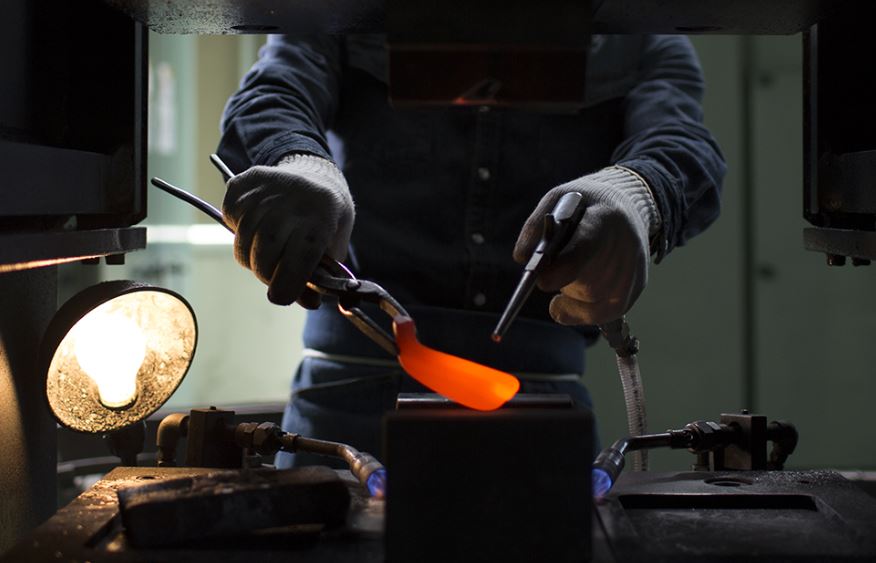
After testing some of the best irons that Miura has to offer, we would like to offer an answer to the question, ‘are Miura irons any good?’
with an emphatic, yes! Every iron we tested for this review felt amazing and the only way that any of them came up short was that some of them aren’t for mid handicappers.
We were also pretty surprised that a couple of Miura irons that we tested (namely the KM 700’s and the PI-401’s) actually areI very playable for mid handicappers.
Of course, these irons are very expensive but that’s because they are individually made. If you can afford them, you can hardly go wrong with Miura irons.




